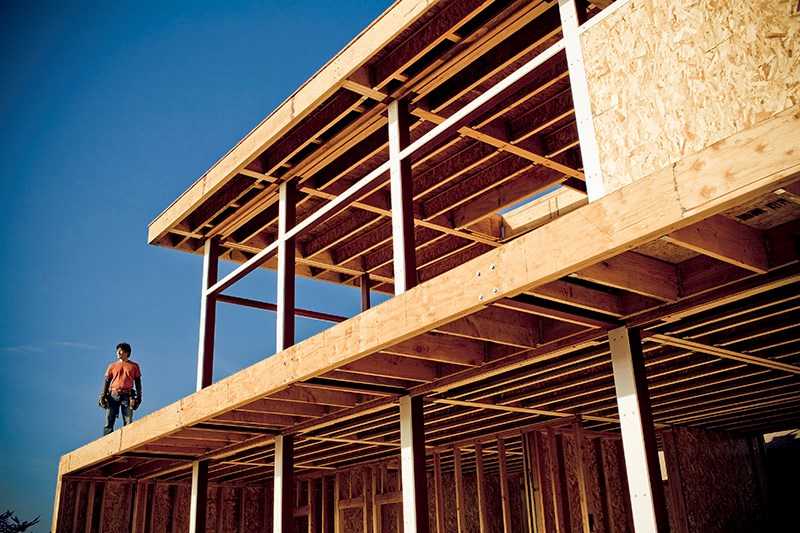Co-op residents across Canada are breathing a sigh of relief after the unveiling of the Liberals’ $40-billion national housing strategy on Wednesday.
The decade-long plan includes a $500-million federal community housing initiative, which will protect tenants in co-ops whose operating agreements were set to expire soon.
New operating agreements will be put in place, allowing the continuation of subsidized rents for low-income residents.
“It’s absolutely fabulous news,” said Thom Armstrong, executive director at the Co-operative Housing Federation of B.C. “We’re so grateful that so many of our members will no longer have to worry about whether their homes will be affordable. It means we can now focus our energies on the long-term agenda, which really is increasing the supply of affordable housing.”
The federal government has committed $15.9 billion to a national housing co-investment fund, money that will create up to 60,000 new units of housing (including co-ops) and repair up to 240,000 existing units. It’s to be a partnership between provinces, territories, municipalities, non-profits, co-operatives and the private sector.
The fund will consist of $4.7 billion in financial contributions and $11.2 billion in low-interest loans. In turn, recipients need to rent 30 per cent of their units for less than 80 per cent of median market rents for at least 20 years.
Twenty per cent of units must meet accessibility standards, and there must be at least a 25 per cent reduction in energy consumption and greenhouse gas emissions over national building and energy codes.
“Provided that everyone is focused on the need to use it (the fund) creatively and toward the right goals, it’s a game changer,” said Armstrong.
The executive director added there isn’t a co-operative project for Burnaby on the “development table” at the moment, but “now is exactly the opportunity to sit down.”
“I’d be surprised if every organization in the community housing sector wasn’t sitting down this morning, saying, ‘OK, what do we got that could be rolled forward, and let’s get it built.’ Burnaby is ripe for it.”
Coun. Colleen Jordan, chair of the city’s community development committee, applauded Wednesday’s announcement and said “there’s hope on the horizon.”
“I’m happy to see we finally have a national housing strategy, because we’ve been all looking for this for so long.”
But she said she was disappointed there were no tax breaks for developers wanting to build market rentals.
“They didn’t seem to do anything to assist the private sector in encouraging and having them build more market-rental housing. ... How we got all these market rentals that we have now is through those kinds of programs,” she said. “But it looks like there’s some opportunities there. The provinces are going to have to match a lot of it, and that’s going to be a struggle in some places, too, so we’ll see how it unfolds.”
Kennedy Stewart, NDP MP for Burnaby South, said he’s glad the Liberals have recognized housing is an issue for many Canadians, but he wants them to “put their money where their mouth is.”
“I’m really hoping that this money actually gets spent, and I’m really hoping we get new units, but what we’ve seen from this government is lots of promises and no deliveries. … This does open the window for us to try to at least address the housing crisis in Burnaby, and I’ll do my best to get as many units in Burnaby as I can.”
The federal government got out of housing in the early 1990s, when funding to build new homes dried up, along with the network of affordable housing builders.
Stewart said there’s such a huge deficit of affordable housing that it’s going to take billions and billions of dollars to get back on track.
“I’m hoping they’re (the Liberals) are going to reverse this course, and I think the announcement is a good start.”
On Wednesday, the B.C. NDP reiterated their commitment to working with the feds to address the province’s housing needs.
“Housing is the foundation of healthy families and strong communities,” said Selina Robinson, minister of municipal affairs and housing, in a press release. “Unfortunately, too many people are struggling to find homes they can afford. Provinces and territories are ready to work in partnership with the federal government to improve housing affordability, tackle homelessness, address Indigenous housing and make sure Canada maintains social housing stock today and in the future.”
Housing strategy highlights
It’s a human right: The federal government plans to make the right to adequate housing a human right by enshrining it into Canadian law.
Homelessness: The national housing strategy aims to reduce homelessness across Canada by 50 per cent in 10 years.
7,000: The number of shelter spaces created or repaired for survivors of family violence.
12,000: The number of new affordable units for seniors.
2,400: The number of new affordable units for people with developmental disabilities.
$4.3 billion: Canada Community Housing Initiative, where in order to participate, provinces and territories need to match the feds’ funding. The initiative is expected to maintain affordability for 330,000 households in community housing.
$4 billion: Starting in 2020, the Canada Housing Benefit will deliver an average of $2,500 per year to families and individuals in housing need, including potentially those living in social housing, those on a social housing waitlist, or those housed in the private market but struggling to make ends meet.



